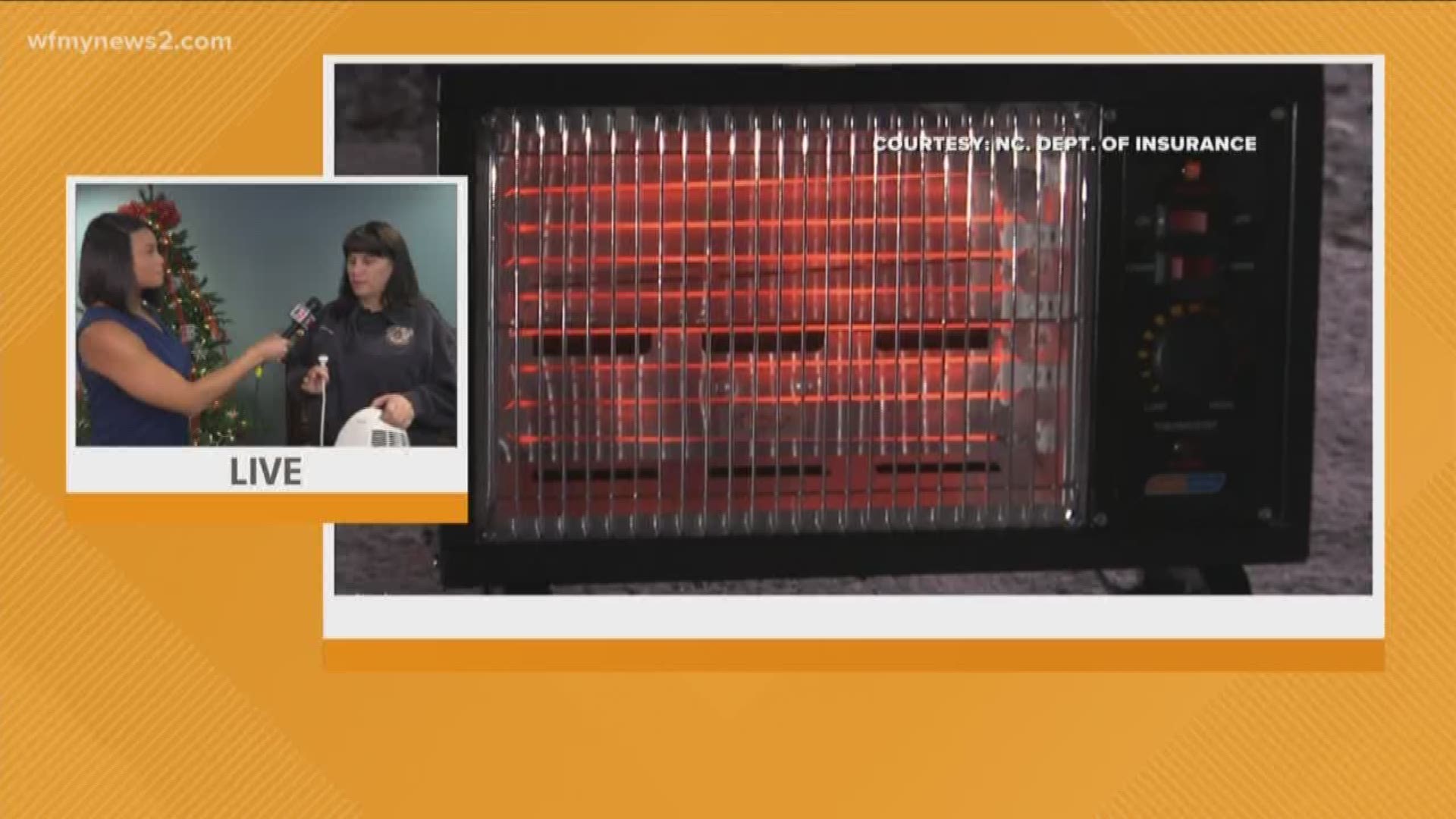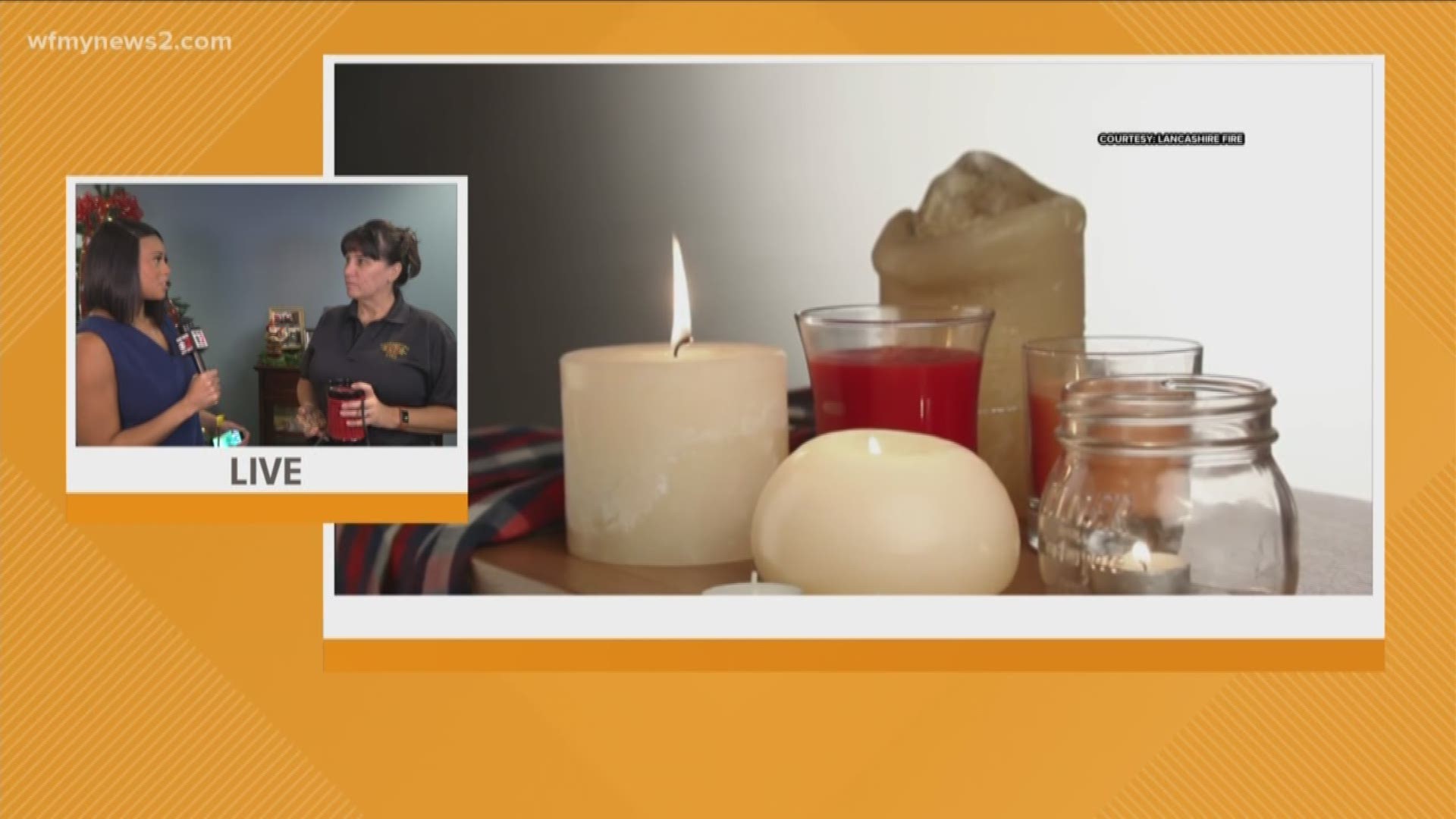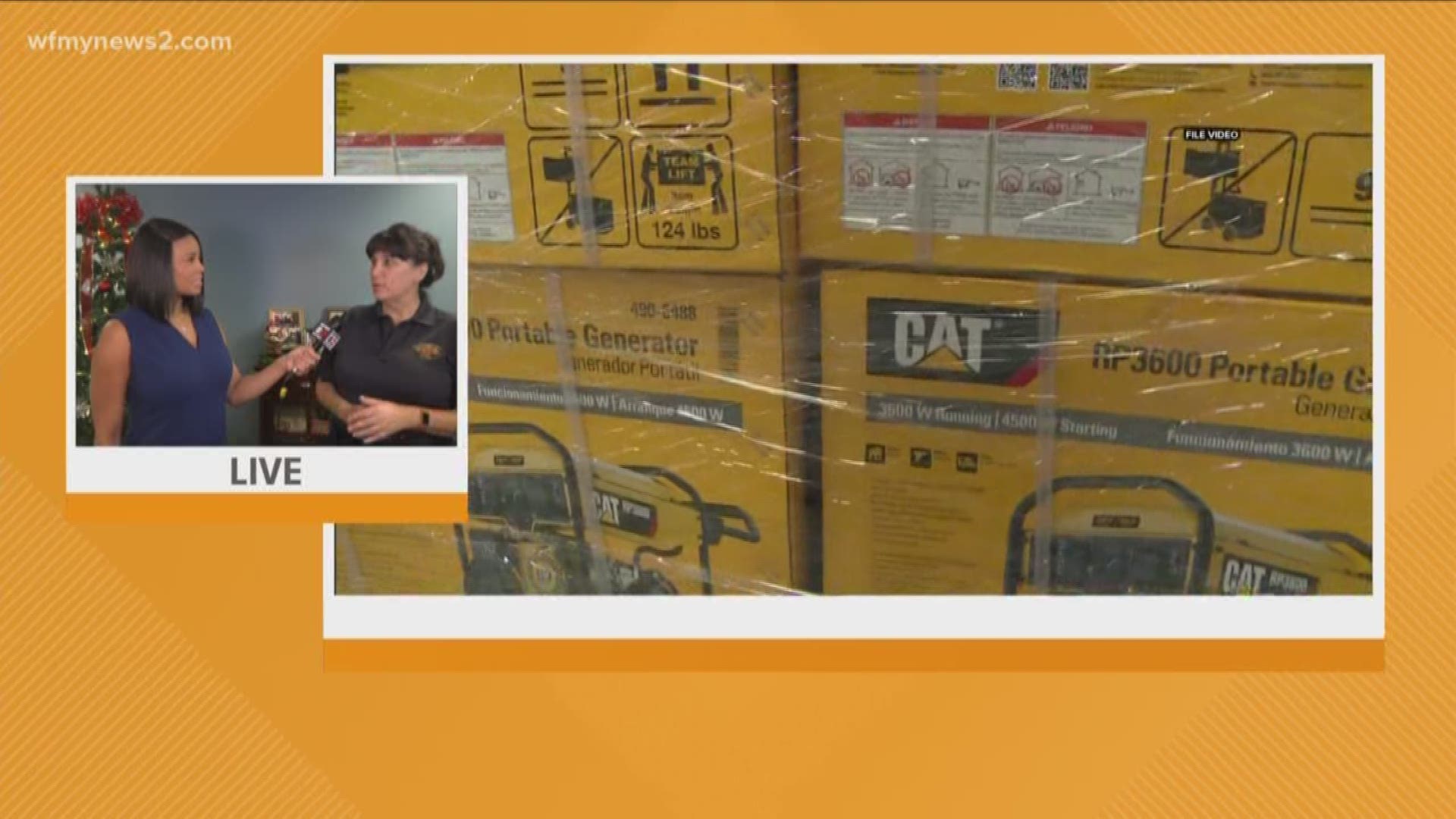GREENSBORO, N.C. — Heating equipment is one of the leading causes of home fire deaths.
The latest National Fire Protection Association report shows, U.S. firefighters responded to an estimated average of 52,050 fires involving heating equipment each year in 2012-2016.
Those fires resulted in annual losses of 490 civilian deaths, 1,400 civilian injuries, and $1 billion in direct property damage.
With a few simple safety tips and precautions, you can prevent most heating fires from happening.
The NFPA offers the following home fire prevention tips:
- Install wood burning stoves following manufacturer's instructions or have a professional do the installation.
- All fuel-burning equipment should be vented to the outside to avoid carbon monoxide (CO) poisoning.
- Install and maintain CO alarms to avoid the risk of CO poisoning. If you smell gas in your gas heater, do not light the appliance. Leave the home immediately and call your local fire department or gas company.
- Keep anything that can burn at least three-feet (one metre) away from heating equipment, like the furnace, fireplace, wood stove, or portable space heater.
- Have a three-foot (one metre) "kid-free zone" around open fires and space heaters.
- Never use your oven to heat your home.
- Have a qualified professional install stationary space heating equipment, water heaters or central heating equipment according to the local codes and manufacturer's instructions.
- Have heating equipment and chimneys cleaned and inspected every year by a qualified professional.
- Remember to turn portable heaters off when leaving the room or going to bed.
- Always use the right kind of fuel, specified by the manufacturer, for fuel burning space heaters.
- Make sure the fireplace has a sturdy screen to stop sparks from flying into the room. Ashes should be cool before putting them in a metal container. Keep the container a safe distance away from your home.
- Test smoke alarms at least once a month.



